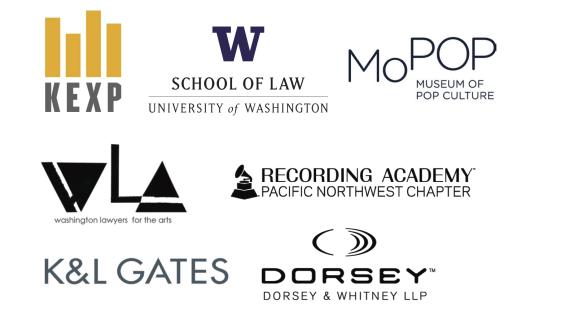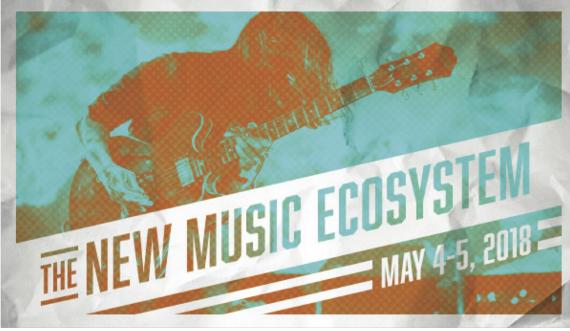The New Music Ecosystem Conference | May 4-5, 2018
ABOUT
Looking for expert analysis of the major Music Modernization Act bill rapidly moving through Congress? Want to learn the latest on issues and policy in the music industry and ecosystem and how to navigate them? Major changes are happening, and this conference will cover a broad range of topics across the music ecosystem.
Conference is intended for musicians, music fans, lawyers, artist advocates, business leaders, government policymakers, and anyone interested in supporting thriving music ecosystems in Seattle and beyond.
Registration required for reserved seating area, lunch, break refreshments, and evening reception at KEXP on Day One, and for all access to MoPOP on Day Two. But as always, the KEXP Gathering Space is open to the public for anyone who does not need to sit in reserved area or lunch, break refreshments, or evening reception.
Highlights include:
-
Keynote by the Director of the U.S. Copyright Office, Karyn A. Temple
-
Panel dedicated to the Music Modernization Act
-
Discussion of new music economics and platforms with national experts from the music industry, academia, and government
-
Demonstrations of new music instruments and technologies such as the “encephalophone”—the first instrument controlled solely by brain waves—by Thomas Deuel and Juan Pampin
-
Performance by The Slants
-
Screening of the documentary Unsound that includes KEXP’s John Richards
University of Washington, KEXP, MoPOP, Recording Academy and Washington Lawyers for the Arts present a day and half conference of musicians, lawyers, business leaders, and government officials to discuss the challenges and work towards policies supporting vibrant local music ecosystems.
WHERE: KEXP’s Gathering Space and Museum of Pop Culture (MoPOP)
-
To request disability accommodation, contact the Disability Services Office at 206-543- 6450 (voice), 206-543-6452 (TTY), 206-685-7264 (fax), or dso@uw.edu. The University of Washington makes every effort to honor disability accommodation requests. Requests can be responded to most effectively if received as far in advance of the event as possible, preferably at least 10 days.

